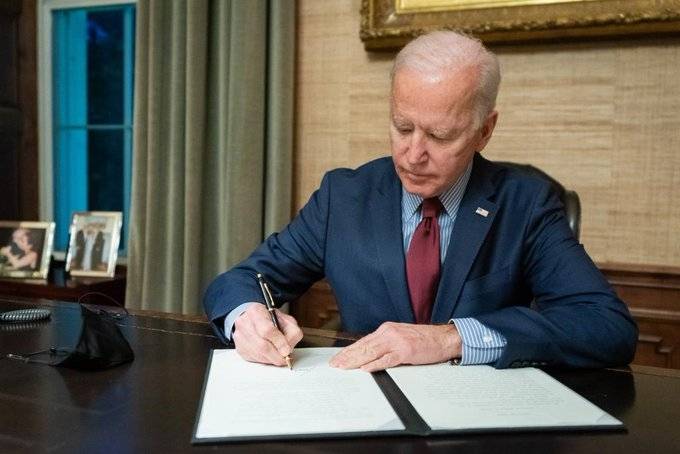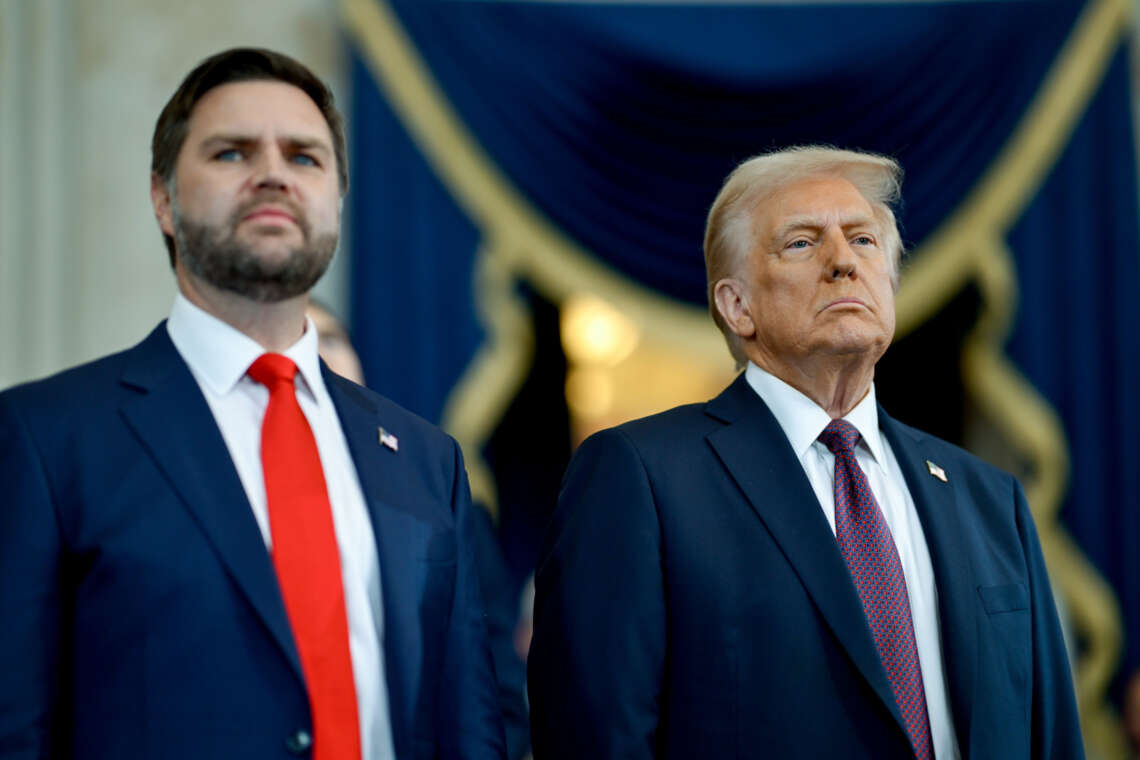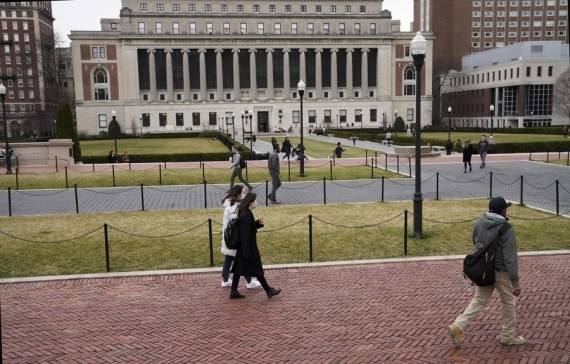The budget unveiled on Friday calls for total spending to run above $6 trillion throughout the next decade, and rise to $8.2 trillion by fiscal year 2031…reports Asian Lite News
President Joe Biden’s $6 trillion budget proposal for fiscal year 2022 has drawn mixed reviews from lawmakers and analysts, setting the stage for a potentially heated debate in Congress.
The proposal, which included Biden’s plan to increase investment in infrastructure, education, health care and beyond, would push federal spending to the highest sustained levels in decades.
The budget unveiled on Friday calls for total spending to run above $6 trillion throughout the next decade, and rise to $8.2 trillion by fiscal year 2031.
Deficits, meanwhile, would stay above $1.3 trillion in the next 10 years.
Biden argued that the budget plan reforms America’s “broken tax code” to reward work instead of wealth, while also fully paying for the American Jobs Plan and the American Families Plan over 15 years, referring to the revised 1.7-trillion-dollar infrastructure plan and the $1.8 trillion spending proposal focusing on childcare and education.
The White House’s budget proposal sparked praise and criticism among lawmakers, whose views are largely divided along party lines.
“President Biden’s budget is an unequivocal declaration of the value that Democrats place on America’s workers and middle class families, who are the foundation of our nation’s strength and the key to Build Back Better,” House Speaker Nancy Pelosi said in a statement, noting that the Biden budget makes “historic” investments in the American workforce and economy.
“Congressional Democrats look forward to working with the Biden-Harris Administration to enact this visionary budget, which will pave the path to opportunity and prosperity for our nation.”
Richard Neal, chairman of the House Ways and Means Committee, said committee Democrats will consider the administration’s proposals carefully. Bernie Sanders, chairman of the Senate Budget Committee, said the committee will soon be holding a hearing on the president’s budget “as a first step”.

ALSO READ: Stage set for Biden-Putin summit
Senate Minority Leader Mitch McConnell, meanwhile, lashed out at the budget plan, arguing that “Americans are already hurting from far-left economics that ignore reality”.
Republican lawmakers have previously lashed out at Biden’s multi-trillion-dollar spending proposals, calling them “liberal daydream”, and arguing that the tax hikes would lower wages, kill jobs and shrink the US economy.
The budget proposal for fiscal year 2022 was released as recent negotiations over Biden’s infrastructure plan failed to yield a deal.
The White House last week lowered the overall price tag of Biden’s $2.3 trillion infrastructure plan to $1.7 trillion, but Senate Republicans then proposed a $928 billion counteroffer, just over half of the President’s revised figure.
Outside Capitol Hill, the newly unveiled budget plan also prompted heated discussion.
“Having followed Presidents’ budgets for 40 years, I think it’s fair to say that while I might modify some things in the new Biden budget, it would, if enacted, do more to reduce poverty and inequality than any other budget in modern US history,” Bob Greenstein, founder of the Center on Budget and Policy Priorities, said on Twitter on Saturday.
“We are pleased that President Biden has put forward important details of his budget plan, that his economic assumptions are reasonable, and that he is proposing to offset new costs over time while modestly reducing long-term deficits,” the Committee for a Responsible Federal Budget, a watchdog group, said on Saturday.
The group, however, argued that the budget adds “too much” to already record-level debt over the next decade and “does far too little” to address rising structural deficits over the long term.
According to the group’s estimation, US debt would rise from 100 per cent of GDP at the end of fiscal year 2020 and a record 110 per cent at the end of 2021 to 117 per cent by the end of fiscal year 2031.
In nominal dollars, debt would grow by $17 trillion, to over $39 trillion by the end of fiscal year 2031.
The Peter G. Peterson Foundation, also a fiscal watchdog group, said in a statement on Saturday that the administration proposes increasing revenues to cover the cost of their longer-term initiatives; “however, those costs would not be fully offset during the traditional 10-year window, rather over a 15-year period”.
“The underlying structural imbalance between revenues and spending that existed before the pandemic budget would remain, leaving an unsustainable fiscal outlook,” the foundation said.
ALSO READ: Biden pitches mammoth $6 trillion budget














